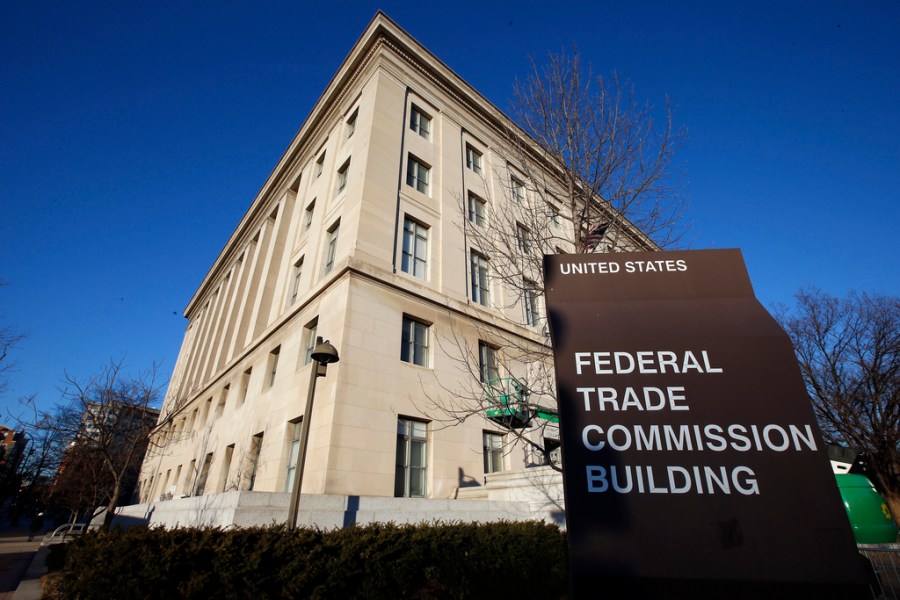
The Federal Trade Commission (FTC) on Tuesday released its second interim report on pharmacy benefit managers (PBM), saying the major industry middlemen generate billions in revenue through vertical integration, industry dominance and marking up the prices of speciality drugs.
The report specifically looked at the business practices of the Caremark Rx, Express Scripts and OptumRx, which are in turn owned by CVS Health, Cigna and UnitedHealth Group, respectively. These companies are considered the “Big 3” in the PBM industry, controlling roughly 60 percent of the market.
“The FTC staff’s second interim report finds that the three major pharmacy benefit managers hiked costs for a wide range of lifesaving drugs, including medications to treat heart disease and cancer,” FTC Chair Lina Khan said in a statement.
Khan said during an FTC open commission meeting to discuss the findings on Tuesday that the five-person commission had voted unanimously in favor of issuing the report.
According to the report, the “Big 3” PBMs marked up the prices of many speciality generic drugs by hundreds or thousands of percent.
Significantly marking up the prices 51 such drugs helped PBM-affiliated pharmacies generate $7.3 billion in revenue between 2017 and 2022. The commission noted these prices were in excess of the National Average Drug Acquisition Cost (NADAC) for these drugs.
As is noted in the report, there is no set definition for what specialty drugs are. The Office of Inspector General for the Department of Health and Human Services has previously said a product can be considered a speciality drug because it may be “expensive; be difficult to handle, monitor or administer; or treat rare, complex or chronic conditions.”
The FTC found that 22 percent of speciality drugs dispensed by PBM-affiliated pharmacies were marked up by more than 1,000 percent while 41 percent were marked up between 100 and 1,000 percent. Among those drugs marked up by more than 1,000 percent, half of them were marked up by more than 2,000 percent.
In 2023, the top three PBMs dispensed the majority of specialty drugs in the U.S. at 68 percent, a double-digit hike from when it dispensed 54 percent of specialty drugs in 2016.
“Specialty generic drugs represented a growing profit center for the Big 3 PBMs and their affiliated pharmacies during our study period from 2017 through part of 2022,” the report found.
“Given the combination of high reimbursement rates and large dispensing volumes, the Big 3 PBMs’ affiliated pharmacies generated significant and growing levels of revenue in excess of estimated acquisition cost (NADAC) on the most highly marked up specialty generic drugs during the study period, while the Big 3 PBMs also appeared to take in significant income from spread pricing on these drugs, in aggregate,” the report continued, while noting plans sponsors and patients paid “substantially” more in that same time frame.
Antitrust attorney Austin Ownbey spoke on behalf of the Pharmaceutical Care Management Association (PCMA), a trade organization that represents PBMs, during the open commission meeting Tuesday.
“PCMA has significant concerns that a second interim report regarding specialty drugs is unlikely to be anything other than a piece of advocacy without substantiating evidence,” said Ownbey. “Specialty drugs offer the most effective and, in some cases, the only treatment for illness and conditions that historically had few treatment options, including multiple sclerosis, cystic fibrosis, cancer and autoimmune disorders.”
PBM practices have incurred significant bipartisan scrutiny in Congress. Sens. Elizabeth Warren (D-Mass.) and Josh Hawley (R-Mo.) as well as Reps. Jake Auchincloss (D-Mass.) and Diana Harshbarger (R-Tenn.) called on the FTC to issue its second interim staff report. The lawmakers said they expected the report would inform future legislation on PBMs.












